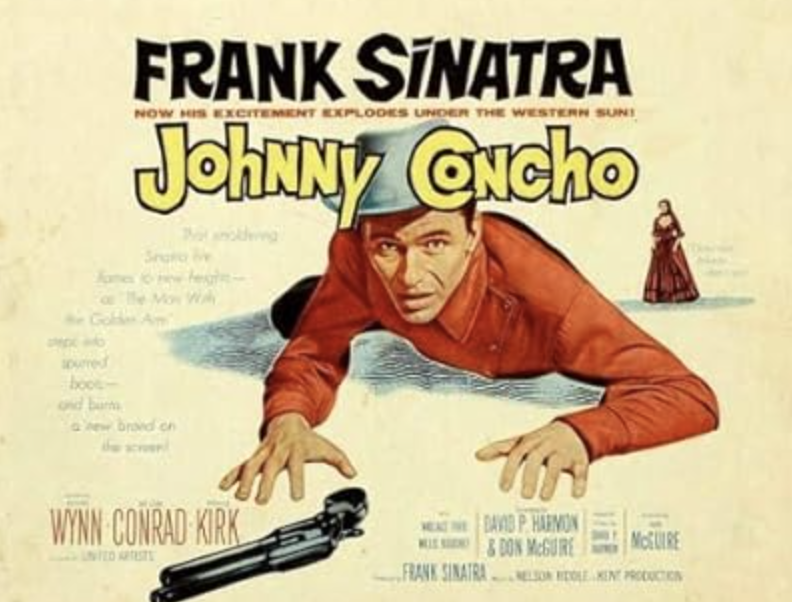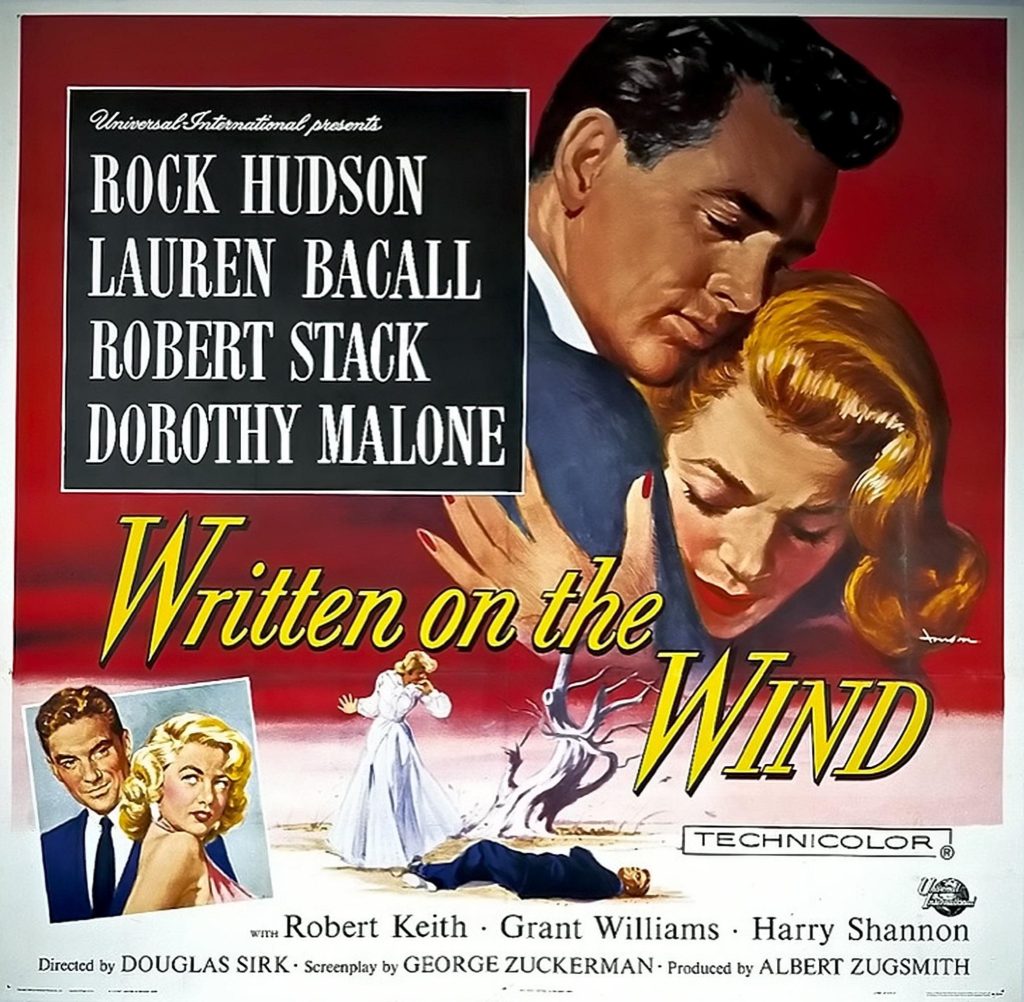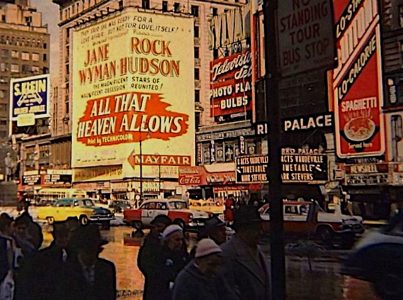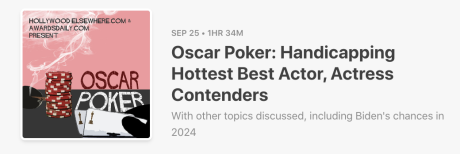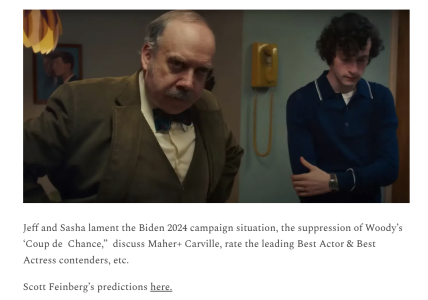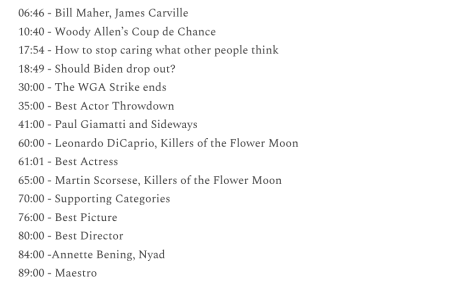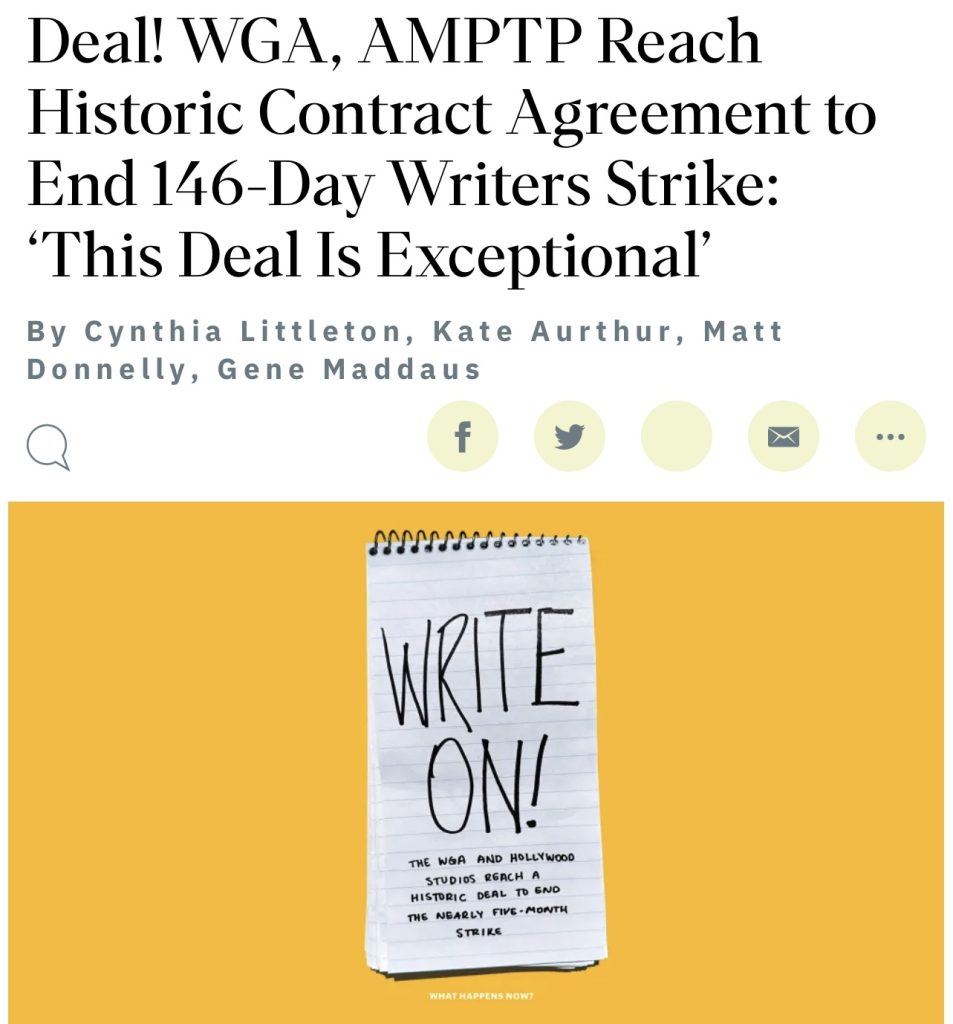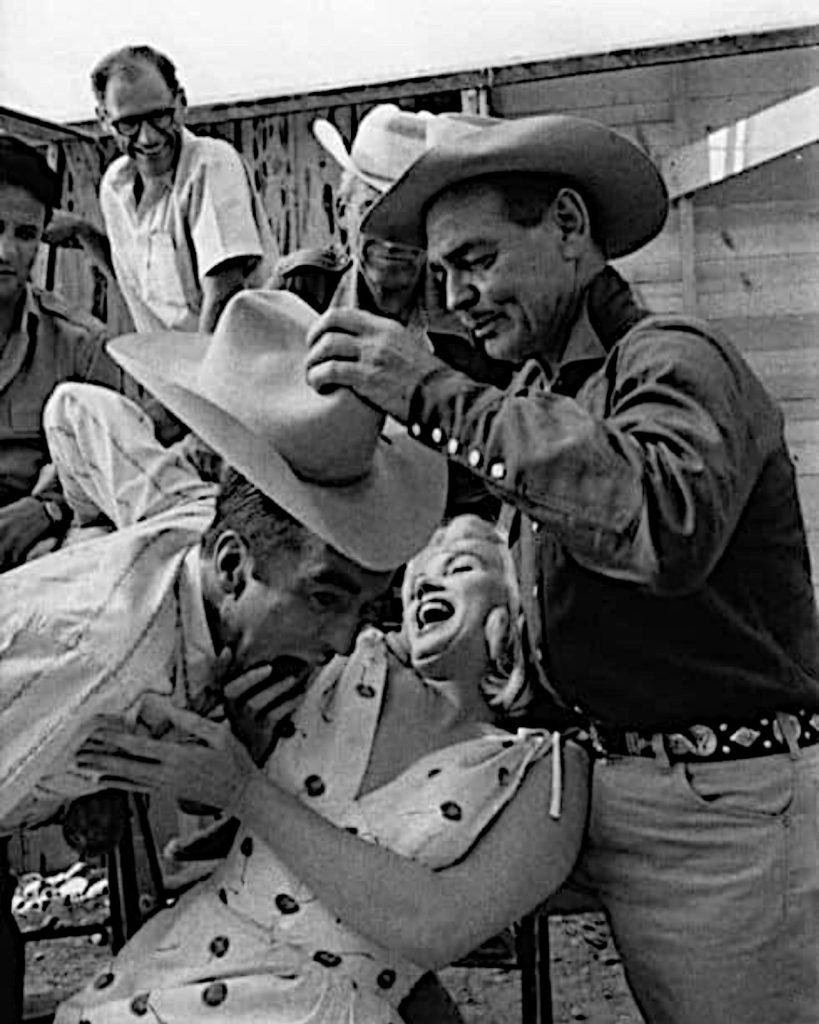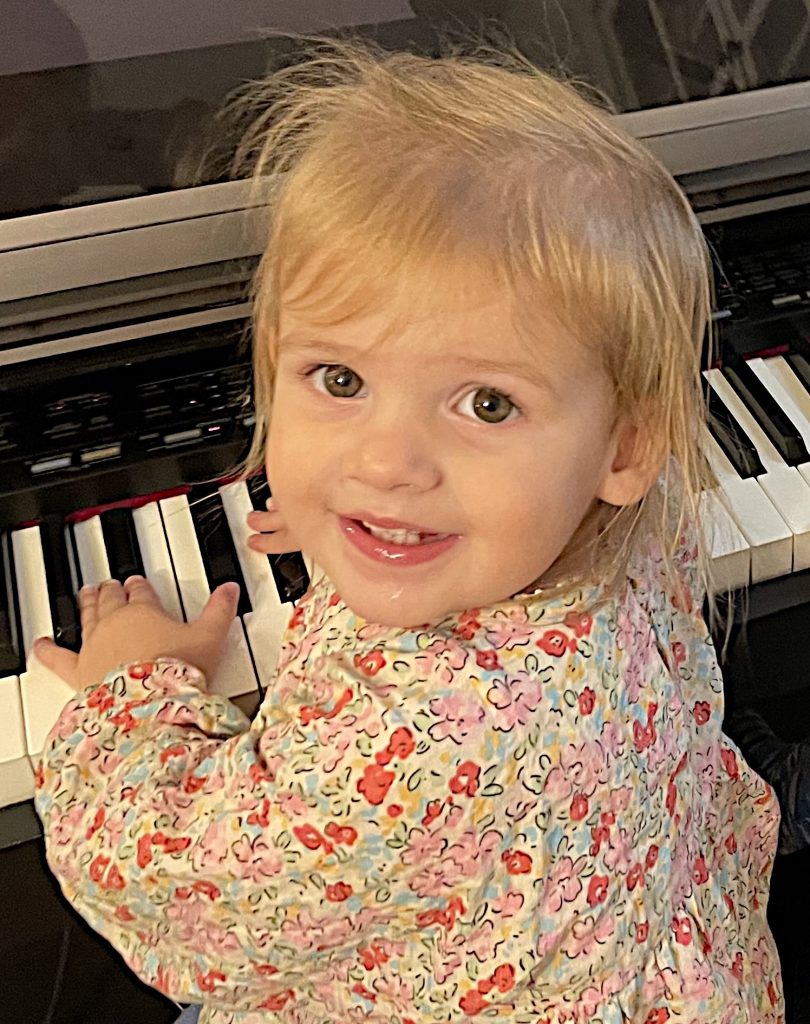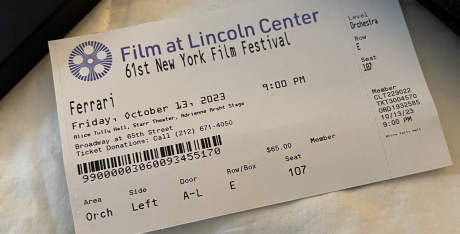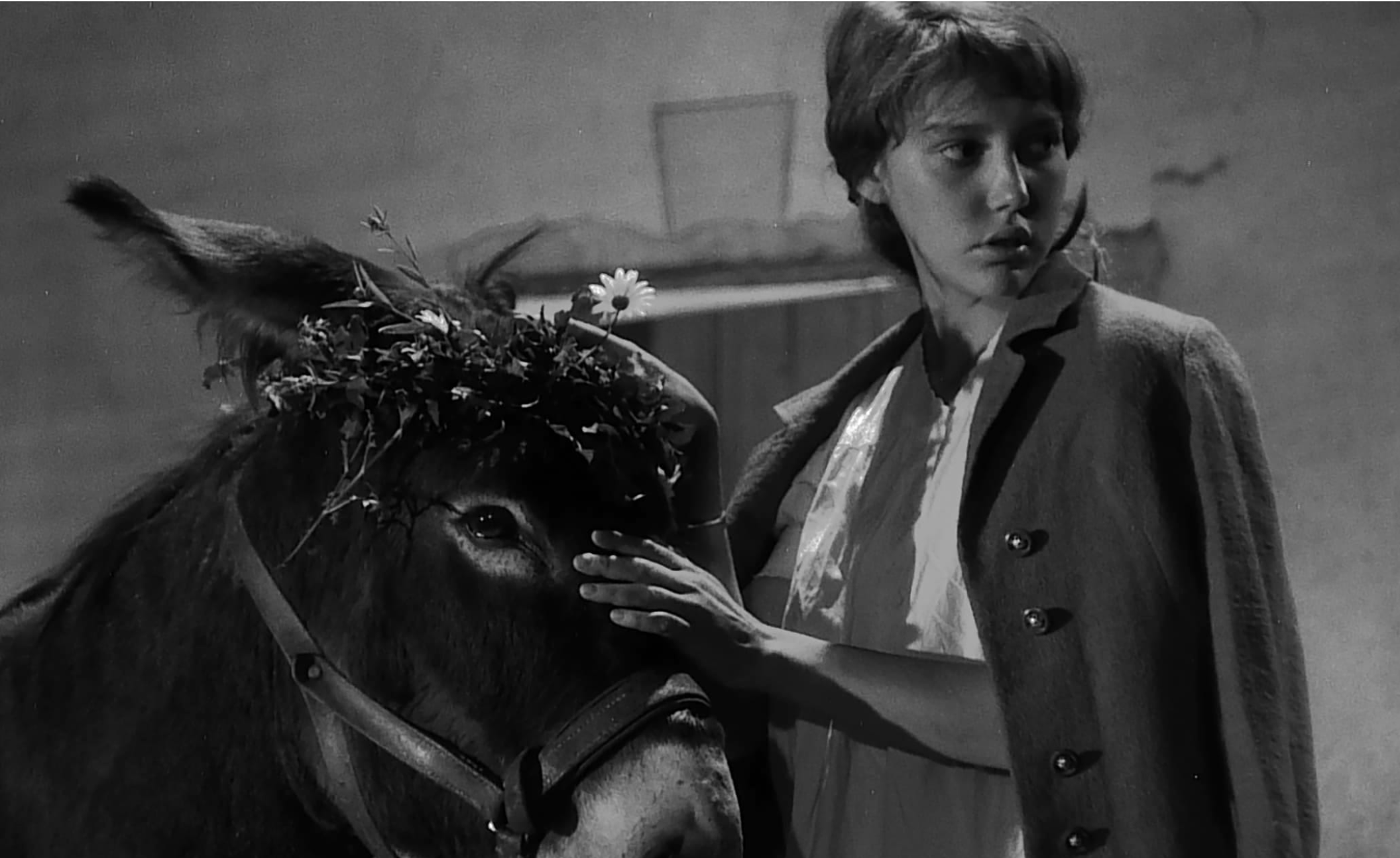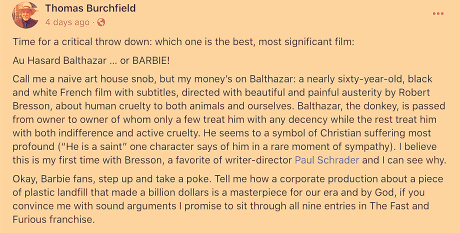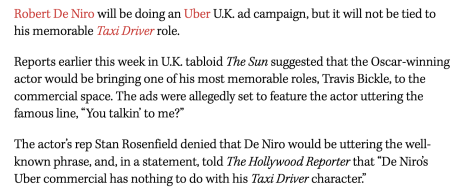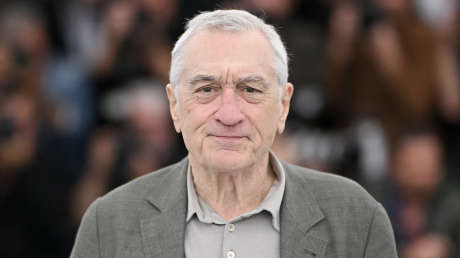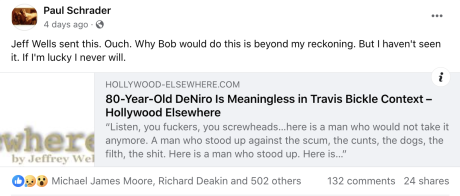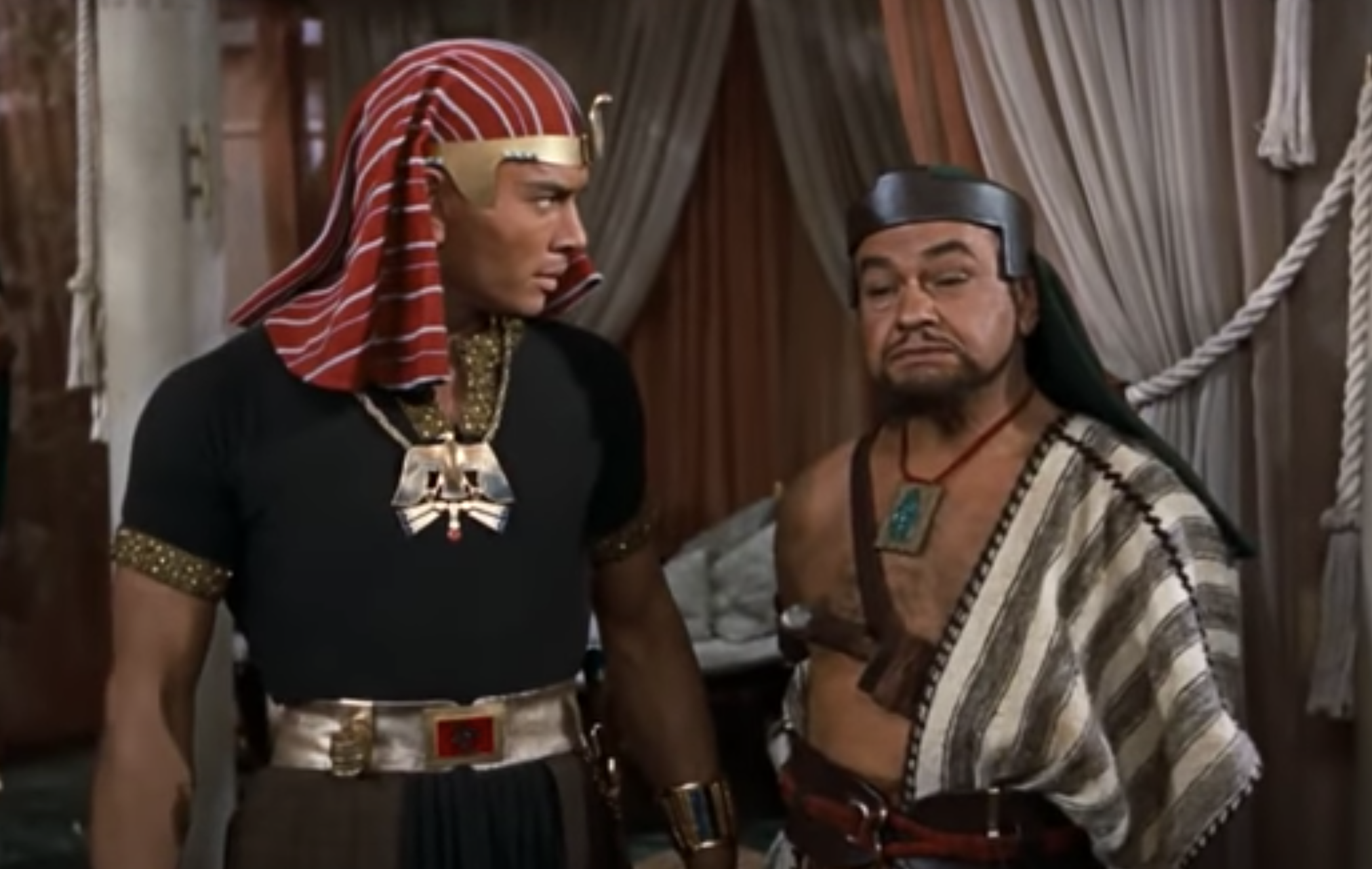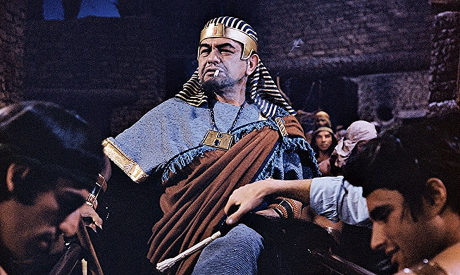[Initially posted on 7.16.15] This may not pass muster with traditional Western devotees (i.e, readers of Cowboys & Indians) but arguably one of the most influential westerns ever made is Johnny Concho (’56), a stagey, all-but-forgotten little film that Frank Sinatra starred in and co-produced. For this modest black-and-white enterprise was the first morally revisionist western in which a big star played an ethically challenged lead character — i.e., a cowardly bad guy.
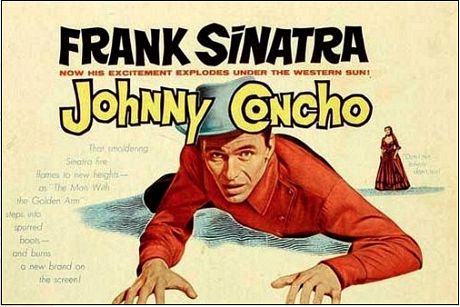
The conventional line is that Marlon Brando‘s One-Eyed Jacks was the first western in which a major star played a gunslinging outlaw that the audience was invited to identify or sympathize with — a revenge-driven bank robber looking to even the score with an ex-partner (Karl Malden‘s “Dad” Longworth) who ran away and left Brando’s “Rio” to be arrested and sent to prison.
This opened the door, many have noted, to Paul Newman‘s rakishly charming but reprehensible Hud Bannon in Martin Ritt‘s Hud two years later, and then the Spaghetti westerns of Sergio Leone (beginning with ’64’s A Fistful of Dollars) and particularly Clint Eastwood‘s “Man With No Name.”
But before One-Eyed Jacks audiences were presented with at least three morally flawed western leads portrayed by name-brand actors. First out of the gate was Sinatra’s’s arrogant younger brother of a notorious gunslinger in Concho. This was followed in ’57 by Glenn Ford‘s Ben Wade, a charmingly sociopathic gang-leader and thief, in Delmer Daves‘ 3:10 to Yuma. And then Paul Newman‘s Billy the Kid in Arthur Penn‘s The Left-Handed Gun (’58).

